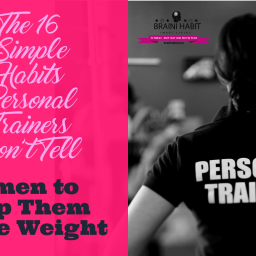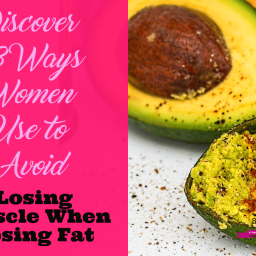Many Low-Carbohydrate Diets often come with such obscure names that one cannot for the life of them understand how they work.
A diet titled ‘Health-Max’ tells you nothing about how the diet really works.
In light of this, this article peels away the shroud from many such diets and informs you on the link between a low-carbohydrate diet and weight loss.
Even before listing the popular low-carb weight loss plans, the article gives you the fundamentals of what a low carbohydrate diet entails, whether it really achieves weight-loss and how it should and should not be done.
With this information, you can make a confident and informed decision on which low-carbohydrate weight loss diet plan you should subscribe to, or even choose to tailor your own low carbohydrate diet, to achieve your weight loss goals.

- Defining a Low – Carbohydrate Diet
- How Low-Carbohydrate Diets Achieve Weight Loss
- Can You Achieve Weight-Loss on a Low-Carbohydrate Diet?
- Effect of Low-Carbohydrate Diets on Body Composition after Weight Loss
- Disadvantages of a Low Carbohydrate Diet for Weight Loss
- Who Should Avoid a Low-Carbohydrate Diet for Weight Loss
- What to Avoid While On a Low-Carbohydrate Diet for Weight Loss
- Eating for Weight Loss on a Low-Carbohydrate Diet
- What Not To Eat on a Low Carbohydrate Diet for Weight Loss
- What to Eat on a Low-Carbohydrate Diet for Weight Loss
- Some Famous Low- Carbohydrate Diets for Weight Loss
- The bottom line on diets for women to achieve weight loss
Defining a Low – Carbohydrate Diet
All diets aim to achieve one goal: To limit the number of calories that you consume in-order for you to achieve weight loss.
As the name suggests a low-carbohydrate diet aims to achieve this by limiting the number of carbohydrates one consumes in a day and often replacing those calories with fat (1).
Unfortunately, there is no consensus among scientists on how many units of carbohydrates a diet should restrict for it to be referred to as a low carbohydrate diet.
Nevertheless, an article endorsed by the American Academy of Family Physicians suggests that a low-carbohydrate diet is any diet that limits daily intake of carbohydrates to around 20 to 60 grams per day (2).
How Low-Carbohydrate Diets Achieve Weight Loss
To understand how low-carbohydrate diets work, you need to first understand what carbohydrates are and their functions.
A carbohydrate can be described as an energy-giving macronutrient (3).
Macronutrients are those nutrients that your body requires in large amounts.
Carbohydrates are divided into different categories depending on their molecular structure.
Basically, those that have a simple molecular structure are referred to as simple carbohydrates and may range from table sugar, or sugar from fruits and lactose.
Those that have a more complex molecular structure are known as complex carbohydrates and may include refined wheat flour and whole grains(4).
When we consume carbohydrates, the body breaks down their molecular structure to its simplest form (glucose) for absorption into the bloodstream.
As glucose levels increase in the bloodstream a hormone known as insulin is released to help the body make use of the glucose for energy.
Some of the glucose is used in your cells as energy, some of it is stored in the liver and muscle cells, while the remaining excess is stored as fat (5).
Because glucose levels in the bloodstream remain low when consuming fewer carbohydrates, insulin levels drop in the bloodstream.
When this happens, your body no longer absorbs glucose into cells or converts it into fat.
Since its primary source of energy is no longer available, it turns to fat as an alternative.
Hence, low carbohydrate diets work by reducing insulin levels in your body and thus forcing it to burn fat as its primary source of energy (6).
Take Home: By preventing the body from using glucose for energy, low carbohydrate diets work by forcing the body to burn fat for its energy thus achieving weight loss.
Can You Achieve Weight-Loss on a Low-Carbohydrate Diet?
With so many diet plan options around, many of which are false, it is understandable that you may ask whether a low- carbohydrate diet really achieves weight loss.
The simple answer is yes, a low carbohydrate diet will lead to weight loss.
The more complicated answer involves questioning how effective the low-carbohydrate diet is compared to its counterparts, and whether it results in better body composition.
Studies show that compared to its counterpart (Low-Fat Diet), the low-carbohydrate diet has a slight edge on weight loss.
A study published by the National Institutes of Health found that while in the long run (measured at more than 6 months) low-fat and low-carbohydrate diets have similar weight loss statistics, in the short run (measured as the first 6 months) the low carbohydrate diet outperforms its counterpart (7).
To put numbers to this finding, another study published in the Strength and Conditioning Journal found that subjects who undertook a low carbohydrate diet lost twice as much weight than those on a low-fat diet (8).
Some scientists question whether the weight being lost on a low carbohydrate diet is actual fat, or water and muscle.
In response to those concerns, another study published by the National Institutes of Health found that consistently adhering to a low-carbohydrate diet will indeed result in fat loss, even more so than a low-fat diet (9).
Take Home: Weight loss can be achieved using a low-carbohydrate diet.
Effect of Low-Carbohydrate Diets on Body Composition after Weight Loss
Good body composition is an important factor to consider as you assess your weight loss options.
Some diets will indeed help you lose weight but as in my experience, they may also lead to undesirable effects such as muscle loss.
To answer the question as to whether a low carbohydrate diet results in good body composition after weight loss, we consider a study published in the Strength and Fitness Journal.
The study found that in subjects that followed a low carbohydrate diet, body fat decreased greatly, while interestingly, lean muscle mass increased (10).
Take Home: A Low-Carbohydrate diet will result in weight loss and good body composition.
Disadvantages of a Low Carbohydrate Diet for Weight Loss
Low carbohydrate diets are not necessarily perfect solutions (if such a thing exists) for your weight loss needs.
Prior to embarking on such a diet, you may need to consider the following trade-offs and disadvantages, in order for you to make the most informed decision.
One great concern with low-carbohydrate diets is that they make you miss out on a very important macronutrient-carbohydrates.
It’s important not to forget that carbohydrates do play a role in ensuring healthy living. Furthermore, not all carbohydrates have a propensity to make you gain weight.
For instance, high-quality whole grains taken in reasonable amounts are essential in providing certain nutrients and vitamins that are not available in fats and proteins.
Whole grains are an excellent source of fiber and B vitamins like folic acid. B Vitamins are essential for good cardiovascular health (11).
For expecting women, they also prevent unborn babies from being born with defects in their neural tubes (12).
Carbs as energy
One must also not forget that carbohydrates are the best energy providing foods. In fact, they are also known as energy-giving foods.
In terms of efficiency, carbohydrates are converted to energy more efficiently than fats and proteins (13).
That means that a low-carbohydrate diet has some negative implications, especially for athletes.
This fact could also be the reason why a good number of people complain of fatigue and headaches when they first start out on a low-carbohydrate diet (14, 15).
Dairy products, usually avoided in many low carbohydrate diets are an excellent source of vitamin D, which is essential for good bone development and maintenance (16).
A general instruction when doing a low carbohydrate diet is that one should consume moderate amounts of protein and should not be concerned about fat intakes (17).
This may create a fallacy that all fats are healthy for you on a low-carbohydrate diet.
On the contrary, foods containing saturated fats, high amounts of cholesterol and trans-fats are very bad for your overall cardiovascular health (18).
Other disadvantages include constipation, a lack of vitamins, and bone loss (because of the fact that many low-carbohydrate diets limit foods rich in calcium).
One last drawback to consider is cost. It is often complained that low-carbohydrate diets are more expensive than their counterparts (19).
Take Home: Despite having many advantages, low-carbohydrate diets also have some disadvantages that you should consider in order to make the most informed decisions.
Who Should Avoid a Low-Carbohydrate Diet for Weight Loss
A low-carbohydrate diet is not a one solution fits all diet plan.
If you fall in any of the categories below, a low-carbohydrate diet may not be the best weight loss option for you, or at least, you should consult your physician before attempting it.
Some low-carbohydrate diets that highly restrict carbohydrate intake may not be good for expectant and lactating mothers.
Because unborn babies and newborn grow at a very fast rate, they need high amounts of carbohydrates. A low carbohydrate diet may affect the proper development of such babies (20).
People on blood pressure medication should consult their physicians before embarking on a low carbohydrate diet for weight loss, for two reasons.
The first reason is that there is a risk of low blood pressure while on a low carbohydrate diet.
Conversely, the positive effects of a low carbohydrate diet may mean that a person on blood pressure medication may need to reduce his medication dosages (21).
Similarly, people on diabetes medication may need to consult their physicians before starting a low carbohydrate diet.
This is because the positive effects of the diet may mean that such people have to reduce their medication dosages (22).
Take Home: Expectant/lactating mothers, those on high blood pressure medication, and those on a diabetes medication should take caution before embarking on a low carbohydrate diet.
What to Avoid While On a Low-Carbohydrate Diet for Weight Loss
For you to achieve your desired weight loss target using a low carbohydrate diet, you must do it well.
This segment highlights the mistakes you need to avoid when on a low carbohydrate diet.
It goes without saying that you should avoid over-eating foods rich in carbohydrates while on a low carbohydrate diet.
The American Academy of Family Physicians suggests that a low-carbohydrate diet is any diet that limits daily intake of carbohydrates to around 20 to 60 grams per day.
Related to the advice above, remember that a low-carbohydrate diet is not a NO-carbohydrate diet.
One of the worst mistakes you can make on this diet is to completely avoid consuming carbohydrates.
As mentioned in the section on disadvantages of this diet, carbohydrates are still a very important macronutrient and are essential for your well-being.
A low carbohydrate diet does not seek to completely restrict carbohydrates, it just reduces their intake.
It is easy to find yourself compensating for a lack of carbohydrates by eating too much protein. This should be avoided.
Low-carbohydrate diets advocate for moderate consumption of protein, not excess. The reason is that by eating more protein than your body requires, you risk triggering gluconeogenesis.
Gluconeogenesis is the process by which amino acids (the building blocks of protein) are converted into glucose.
If this happens, you may end up initiating a chain reaction that will see your blood sugar levels rise and in turn will increase insulin levels, which is precisely what a low-carbohydrate diet seeks to avoid.
When on a low-carbohydrate diet, it is important that your diet is comprised roughly 70% in fat (23).
It is therefore essential that you shun the fear of eating fat. It sounds contradictory, but on a low-carbohydrate diet, you lose fat by eating more fat! On that same note, there are good fats and bad fats.
You must be extremely deliberate on the type of fats you choose to consume. Stick to the unsaturated fats and completely avoid saturated fats, foods high in cholesterol and trans-fat (24).
Most food packages come with nutritional values, so it shouldn’t be hard to know which foods to avoid and which to eat.
There is also a segment below that highlights some great food choices when on a low carbohydrate diet.
Good things come to those who wait. Avoid giving up when on a low-carbohydrate diet.
As mentioned before, you may experience unwanted side effects like headache and fatigue when you start out on a low-carbohydrate diet.
These effects are temporary and will dissipate when your body fully adjusts to using fat as its primary source of energy.
Take Home: Avoid overeating carbohydrates, fearing fat, eating “bad” fat, and giving up while on a low-carbohydrate diet.
Eating for Weight Loss on a Low-Carbohydrate Diet
So far, this article has only highlighted eating requirements for a low-carbohydrate diet in a general way.
This section will give some specifics on what foods you should eat and what foods you should avoid eating while on a low-carbohydrate diet.
The section begins with highlighting the foods you should avoid eating followed by those you should eat.
What Not To Eat on a Low Carbohydrate Diet for Weight Loss
When on a low-carbohydrate diet you should limit the amount of bread and grains you consume.
On average, white bread contains 14 grams of carbohydrates per slice, whole wheat bread contains 17 grams per slice and a bagel contains 29 grams of carbohydrates (25).
With these figures, and given that you should restrict your carb consumption to no more than 60 grams a day, it easy to see why you should severely limit consumption of bread.
Avoid eating fruits. It sounds counter-intuitive given the adage that an apple a day keeps the doctor away, but the reason for this is that fruits contain a lot of simple carbohydrates (sugars).
One pear contains 28 grams of carbohydrates, while a single banana contains 27 grams. Just two dates contain a whopping 36 grams of carbohydrates (26)!
You should also avoid eating high-starch vegetables.
The rule of thumb when it comes to vegetables is that you should eat those vegetables that grow above ground and avoid tubers.
Tubers include potatoes, sweet potatoes, yam, arrowroots, and beet.
A great vegetable alternative is kale. Also on this list is pasta, juice, cereal, legumes, beer, honey and any other type of sugar and milk.
What to Eat on a Low-Carbohydrate Diet for Weight Loss
Now we turn to what you are encouraged to eat while on a low-carbohydrate diet. An advantage of low-carbohydrate diets is that you need not worry about calorie counting.
As such, calorie counts are not listed in this article. On this kind of diet, you will achieve weight loss by sticking to natural unsaturated oils like olive oil.
Butter is also permissible. You may have as much meat as required- but do not go overboard. Fish and seafood are also recommended, as are eggs and cheese.
For vegetables, stick to those that grow above ground like eggplant, tomatoes, bell peppers, cauliflower, broccoli, kale and asparagus.
Because avocado is rich in good fats and low in sugar, it is an exception to the requirement that you should avoid fruits.
On a low-carbohydrate diet you may drink water, coffee, and tea, as well as red wine on occasion.
Take Home: Avoid foods rich in carbohydrates and prefer those rich in unsaturated “good” fats.
Some Famous Low- Carbohydrate Diets for Weight Loss
Now that you are armed with all the information that you need to embark on a low carbohydrate diet for weight loss, we may look at some of the more popular low-carbohydrate diets over the years.
Remember that you do not necessarily have to use the models you see below.
The information given to you in this article is enough for you to formulate a personalized diet for yourself.
1. The Atkins Diet
This is perhaps the most renowned low-carbohydrate diet. Invented by the physician and cardiologist Robert Atkins, this diet achieves weight loss in four stages (27).
The first is known as the induction phase, where the diet recommends eating less than 20 grams of carbohydrates in the first 14 days.
The second stage is coined the “balance” stage, where the diet plan recommends slowly increasing intake of fruits, starchy vegetables, and some nuts.
The third stage is known as the fine tuning stage. In this stage as you near your weight loss goal, you slow down the fat burning process by increasing your blood insulin levels through eating more carbohydrates.
The last phase involves going back to eating a balanced diet, where it is permissible to eat as many carbohydrates as you would require without relapsing.
Take Home: The Atkins diet starts by destabilizing your macronutrient intake then slowly normalizes it as you achieve your weight loss goals.
2. Low-Carbohydrate Mediterranean Diet
Mediterranean cuisine is known for its heavy use of unsaturated oils such as olive oil.
This diet is premised upon that cuisine and is a popular choice amongst nutritionist. It is largely believed to prevent cardiovascular illnesses (28).
It differs only slightly from a regular low-fat diet, by its insistence on more sea food as the primary source of protein and olive oil as a primary source of “good” fat.
Take Home: Based on Mediterranean cuisine, this diet advocates for a lot of seafood and olive oil.
3. Low-Carbohydrate Paleo Diet
This is also a very popular diet for people choosing to go the low-carbohydrate way.
Although it is not specifically intended as a low carbohydrate diet, the kinds of foods it advocates make it one.
As you may have deduced from the name, the Paleo diet, advocates eating only those foods that were available to human beings during the Paleolithic period, before the agricultural revolution (29).
By coincidence, these foods tend to be very similar to those that are advocated by a low-carbohydrate diet for weight loss.
Take Home: Though not strictly a low-carb diet, the foods recommended in the Paleo diet are very similar to typical low-carb diets.
4. The Atkins Diet (Vegan Version)
Also known as the Eco-Atkins diet, this variant of the Atkins diet is specifically designed for vegans.
It features vegetable foods that are rich in fats and protein, such as soy, plant oils, gluten, and nuts.
Take Home: The Eco-Atkins diet is a vegan version of the Atkins Diet.
The bottom line on diets for women to achieve weight loss
Low carbohydrate diets are effective in achieving weight loss and good body composition.
However, one should consider the advantages and disadvantages of using such a diet before starting.
Expectant and lactating mothers, those with high blood pressure as well as those on diabetes medication should consult their physicians before considering a low-carbohydrate diet for weight loss.
In general, on such a diet one should avoid starchy foods and prefer those rich in protein and fat.
There are many diet plans to choose from including the Atkins and Eco-Atkins diet, the Paleo Diet and the Mediterranean diet.
Armed with this information, you are certain to achieve great results as you embark on your low-carbohydrate diet plan!





